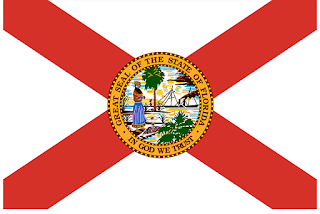How to register a business in Florida
To register a business in Florida, you need to follow these steps:
Step 1. Choose a Business Structure.
Decide on the legal structure for your business, such as a sole proprietorship, partnership, corporation, or limited liability company (LLC). Consider consulting with an attorney or accountant to determine the best structure for your specific needs.
Step 2. Select a Name:
Choose a unique name for your business that complies with the naming requirements of the Florida Department of State. Ensure that the name is distinguishable from any existing business entities in the state.
Step 3. Register with the Division of Corporations:
Visit the website of the Florida Division of Corporations (http://dos.myflorida.com/sunbiz/) and create an account. You will need to complete the necessary registration forms and pay the required filing fee. The forms can be filed online or submitted by mail.
Step 4. Obtain an Employer Identification Number (EIN):
If you plan to hire employees or operate your business as a corporation or partnership, you will need to obtain an EIN from the Internal Revenue Service (IRS). You can apply for an EIN online on the IRS website (https://www.irs.gov/businesses/small-businesses-self-employed/apply-for-an-employer-identification-number-ein-online).
Step 5. Register for State Taxes:
Depending on the nature of your business, you may need to register for state taxes. Visit the Florida Department of Revenue website (http://floridarevenue.com/) to determine your tax obligations and complete the necessary registration.
Step 6. Licenses and Permits:
Obtain
Determine if your business requires any specific licenses or permits to operate legally in Florida. The requirements vary depending on the type of business you are starting and may include professional licenses, zoning permits, or industry-specific permits. You can check the Florida Department of Business and Professional Regulation website (https://www.myfloridalicense.com/) for more information.
step 7. Register for Local Taxes and Permits:
Contact your local county and city authorities to determine if there are any additional local tax obligations or permits required for your business.
Step 8. Comply with Employer
Responsibilities: If you plan to hire employees, make sure you understand and comply with all federal and state employer responsibilities, such as workers' compensation insurance, unemployment insurance, and withholding taxes.
Inclusion
It's important to note that the above steps provide a general overview of the process, and there may be additional requirements depending on the specific nature of your business. It is recommended to consult with an attorney, accountant, or business advisor to ensure compliance with all legal and regulatory obligations.








0 Comments